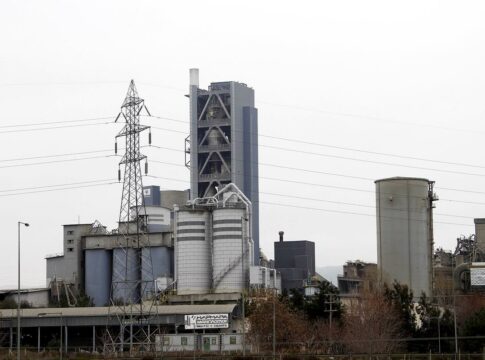Greek households are faced with strong pressure from high inflation and housing costs which is not covered by rather limited salary increases. As a consequence of this very negative condition for workers, the purchasing power of their salaries ranks them in last place in the EU.
These figures result from the Interim Report published by the Labor Institute (INE) of the GSEE and show that the average annual adjusted full-time salary stood at 17,013 euros in 2023, a performance that is the third lowest among the 26 EU member states.
This development led to the downgrading of Greece’s position from 13th in 2009 to 24th in 2023. In terms of purchasing power parity (PPP), the corresponding figure in Greece amounted to 21,004, the lowest among the EU member states.
The discrepancy in the purchasing power of workers in the country compared to other Balkan and Eastern European member states is indicative of the size of the problem.
Compared to Bulgaria, the average annual adjusted full-time salary in our country in 2023 was lower by 1,365 PPS, compared to Slovakia by 2,743 PPS, compared to Hungary by 3,100 PPS, while compared to Romania and Croatia by 9,945 and 10,485 PPS respectively.
Annual adjusted full-time earnings in PPS terms in Greece, compared to the EU average, corresponded to only 55.5% in 2023. The data reflect the welfare deficit that workers in Greece currently face due to the low purchasing power of their earnings, compared to the corresponding EU average, but also to other neighboring countries.
Salary increases
Although Greece recorded a relatively milder increase in the index during the inflationary crisis compared to the EU average, the increases in the nominal average annual full-time salary in Greece were so moderate (+7.3%, the second lowest increase in the EU), that in real terms the level of this specific salary category decreased by 6.3%, a decrease that is the second largest among the EU member states.
The greatest loss of real income per hour was recorded in the sectors “Construction” (-9%), “Arts, entertainment, recreation, other service activities, etc.” (-5.9%), “Public administration and defense, education and public health activities.”
Inflation
Inflation recorded increases in the four-year period from November 2020 to November 2024, which in several cases were double-digit. The largest change was identified in “Clothing and footwear” (+31.3%), followed by “Food and non-alcoholic beverages” (+30.5%) and “Housing” (+24.3%).
A double-digit growth rate was also recorded in the categories “Transportation” (+23.8%), “Hotels” (+21.4%), “Durable goods, household items and services” (+15.2%) and “Health” (+12.3%).
Giorgos Christopoulos, head of communication and social media at GSEE, described the government’s narrative about increasing the incomes of working people as a “pipe dream.”
“High prices, inflation and the housing crisis are eating away at the incomes of employees. What better proof? The 24th place at EU level in full-time salary and the shameful last place in purchasing power.”














